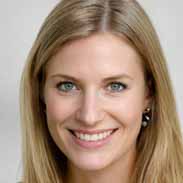Praxis 2 terms for science test – Flashcards
Unlock all answers in this set
Unlock answersquestion
Capital of Greece
answer
Athens
question
Scientific methods
answer
State the problem Make Observations Form a Hypothesis Do an Experiment Draw a conclusion Think POHEC
question
Pasteur
answer
discovered microorganisms
question
Hook
answer
microscopes
question
Mendel
answer
father of genetics, worked with plants
question
Darwin
answer
father of Modern Biology
question
Newton
answer
basically the father of Physics
question
Kepler
answer
dealt with mathematical calculations for determining the distances of celestial bodies
question
Curie
answer
x-rays "mother of radiation"
question
Einstein
answer
work in physics, develop 4 papers (annus Mirabuilus paper)photoelectric effect, molecules & atoms w/ fluids aka Browninan motion, & theory of special relativity light speed doesnt change & changes on vantage pts 4th paper E=mc^2 energy & matter same thing
question
biology
answer
study of living organisms
question
physics
answer
study of forces of nature
question
chemistry
answer
deals with the composition of substances
question
geology
answer
study of earth's processes
question
astronomy
answer
study of celestial bodies
question
ecology
answer
the study of organism interactions with their environments
question
oceanography
answer
study of the world's hydrosphere
question
Structure and properties of matter
answer
Anything that has mass and takes up space, contains both physical & chemical properties
question
4 states of matter
answer
solid, liquid, gas and plasma
question
Chemical Properties
answer
when matter forms another form of matter ex. rusting (can not get the same thing back out)
question
Physical Properties
answer
deals with color, smell, density, buoyancy, boiling, freezing and melting points ex. ripping paper (still paper size only changed)
question
Abundance of elements in the earth's crust
answer
46% O, 28% Si, 8% Al, 5% Fe, Ca 4%, 2% Na Mg and K, 0.5% Ti and 0.14% H
question
Abundance of elements in the atmosphere
answer
78% N, 20% O, 1 % Ar, 0.03% CO2
question
Physical Changes in matter
answer
changes only in appearance of a substance, can still be identify as the same matter
question
Chemical Changes in matter
answer
change of an element by exchanging electrons. A new substances is formed
question
Law of Conservation of Energy
answer
states that energy can not be created or destroyed but can change its form
question
Kinetic Energy
answer
this exists whenever an object which has mass is in motion with some velocity. Everything that is moving is this
question
Potential Energy
answer
energy due to position or stored energy, aka gravitational potential energy.
question
Heat
answer
kinetic energy of random molecular motion
question
Temperature
answer
the measure of the degree of hot or coldness of an object
question
Conduction
answer
one object A touching another hot object B and object A becomes hot ex: pot on a burner
question
Convection
answer
fluids transfer by the circulation ex: boiling water, convection oven
question
radiation
answer
doesn't not need a medium ex: sun warming bodies
question
Thermal Energy
answer
matter warms matter. this causes the atoms to vibrate making the heat of the object rise and essentially raising the temperture
question
Measurement of heat
answer
Kelvin (Astronomy) Fahrenheit (US) Celsius (rest of world, metric system, science community)
question
Convert F to C
answer
5/9 (F - 32)
question
Convert C to F
answer
9C/5 - 32
question
Convert C to K
answer
C + 273
question
First law of Thermodynamics
answer
You cannot get something out of nothing, because matter and energy are conserved. The amount of heat entered is the same amount of heat/energy that you will get back (You cannot win)
question
Second law of Thermodynamics
answer
You cannot return to the same energy state, because there is always an increase in disorder; entropy always increases. Heat moves from hot to cold, heat cannot be converted & isolated systems become disordered or have entropy. (You cannot break even)
question
Entropy
answer
amount of disorder created in a system
question
Third law of Thermodynamics
answer
Absolute zero is unattainable (You cannot get out of the game.)
question
Rutherford
answer
theory about structure of atoms. presented a new model that included a nucleus and empty space and electrons
question
Bohr
answer
speculated that electrons moved in distinct paths around the nucleus, theorized that electrons could jump from one level to another. Modern scientists have concluded that electrons do not travel in specific paths
question
Fusion
answer
nuclear forces that combine nuclei
question
Fission
answer
divide the nuclei into other elements
question
Radioisotopes
answer
isotopes which spontaneously emit radiation, used in medicines
question
Radioactivity
answer
the atoms making up matter are generally stable, but some of them are spontaneously transformed by emitting radiations which release energy
question
isotopes
answer
atomic nuclei with the same number of protons but with differing numbers of neutrons
question
half life
answer
the time period under which one half of the radioactive cores decay
question
nuclear reactions
answer
a nuclear reactor is like a furnace which produces steam and hot gases. this steam or hot gasses can provide heat directly or drive turbines to generate electricity.
question
Nuclear reactors uses
answer
are used for electric-power generation throughout much of the world as well as for propelling submarines and some surface vehicles. these produce mass amounts of energy, steam and gases, by products need to be safely disposed.



